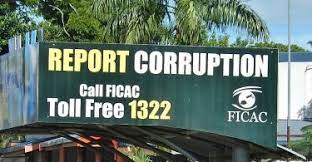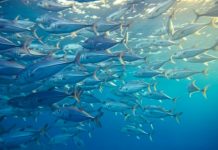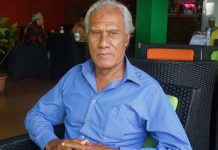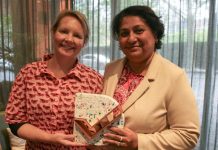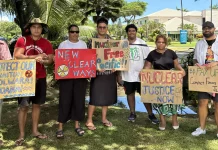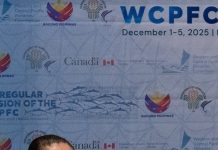By Grant Walton
Over the past few years the Pacific has been a hive of anti-corruption activity. Pacific Island nations have introduced new anti-corruption organisations and legislation; signed international treaties; seen protests, as well as social and traditional media exposés; and have participated in numerous regional meetings about how to best tackle corruption. Regional ownership over the issue has grown. For example, in 2021 the Pacific Islands Forum endorsed the Teieniwa Vision, a regional commitment to fight corruption.
Despite these concerns and commitments, we still know relatively little about how Pacific Islanders perceive and experience corruption, and responses to it. This is particularly the case in smaller island nations, with their larger – by population and landmass – Pacific Island neighbours often garnering the lion’s share of attention from both researchers and policy makers.
A newly released report of analysis I undertook for Transparency International – Perceptions of corruption in seven small Pacific Island countries – aims to address this imbalance. It examines citizens’ perceptions and experiences of corruption in seven smaller Pacific Island countries. Drawing on findings from the first Global Corruption Barometer (GCB) conducted in the region, it highlights responses from a 2021 survey of 1,192 people from Tuvalu, Niue, Tokelau (an island territory of New Zealand), the Cook Islands, Palau, the Republic of the Marshall Islands (RMI) and Nauru. This report follows on from analysis examining GCB results in an additional 10 Pacific Island countries.
The report is a treasure trove of information about citizens’ views on the private and public sector, their experiences with various types of corruption (including bribery and sextortion), and attitudes towards efforts to address it. Coming in at over 40 pages, there’s a great deal to explore and too much to include here. So, in this blog I’ll provide an overview of the report’s key findings and recommendations, and leave interested readers to take a deeper dive into the full report itself.
To start with, the report’s first key finding presents some potentially good news. This is particularly the case if you are inclined to think that perceptions of corruption equate to its frequency. In most of the seven countries, few respondents believed that government corruption was a significant problem. However, amidst rising concerns about the lack of prosecutions following numerous recent allegations of fraud and corruption in the country, RMI was the major exception, with 59% saying that government corruption was a big problem.
Second, the report shows that, as the GCB survey found in other Pacific Island countries, politicians were the group most likely to be associated with corruption. A significant minority from the four Polynesian countries – Tuvalu, Niue, Tokelau and the Cook Islands – were also concerned about corruption involving the police.
The third finding notes that experiences with corruption vary greatly across these seven countries. However, findings from two countries stand out: election bribery and sextortion are reportedly most prominent in RMI and Nauru.
Given that the line between gift-giving and corruption is sometimes blurred in the Pacific, the report also focuses on the role that reciprocity plays in the public’s understanding of and response to corruption and informal transactions. Its fourth finding shows that more than half of respondents from RMI (where 72% reported drawing on personal relationships to get a government service), the Cook Islands (59%) and Tokelau (57%) believed that reciprocity plays an important role in ensuring that citizens receive public goods.
Finally, similar to GCB results from larger Pacific Island countries, the report finds that respondents were mostly positive when reflecting on the fight against corruption. In six out of the seven countries (Nauru was the exception) the majority believed that their government was doing a good job in tackling the problem. Half or more from all countries, except Nauru and Niue, believed that ordinary people could make a difference in addressing it. Yet, like elsewhere in the Pacific, in all seven countries few believed that those engaged in corruption face appropriate sanctions. In Niue, the Cook Islands and Nauru fewer than 10% believed sanctions against corruption were frequently enforced.
Nauru was likely a key outlier due to allegations around the involvement of government officials – including President Baron Waqa – in corruption in the country’s phosphate industry. There are also concerns about the paucity of state-based mechanisms designed to fight corruption, and lack of government transparency.
Following on from these five key findings, the report provides six recommendations. First, it suggests further efforts are needed to address corruption in politics. Strengthening, or in some cases introducing, state-based anti-corruption and integrity organisations would be a good first step. So too would efforts to strengthen civil society organisations and coalitions.
Second, high levels of concern in RMI and Nauru over election bribes and sexual favours point to the importance of strengthening processes to support and monitor elections, as well as responding to the gendered dimensions of corruption, particularly in these two countries.
Third, given that most respondents from all countries, bar Nauru, are positive about their government’s responses to corruption, policy makers should learn from past success. In all countries, however, much more needs to be done to ensure that those engaging in corruption face sanctions.
Fourth, awareness-raising measures could be important in countries where perceptions about corruption and informal giving do not match experiences. Research in other countries (including Papua New Guinea) has shown that awareness-raising efforts need to be tailored to country contexts, lest they inadvertently encourage more corruption and less willingness to address it.
Indeed, the fifth recommendation stresses that, given the complex histories, cultures, social structures and economies of each country, all anti-corruption reforms will need to be tailored. Given this, the report provides further country-specific recommendations.
Finally, it is important to note that the report is not meant to be the final word on corruption and anti-corruption reform in these small island states. In turn, it points to key areas for future research and monitoring, including evaluating the effectiveness of key integrity agencies and networks across the region.
In sum, Perceptions of corruption in seven small Pacific Island countries adds to the expanding number of studies that highlight the way people of the region perceive and experience corruption and efforts to address it. This anthology should provide regional policy makers with greater insights into how the public are likely to respond to current and future reforms…
SOURCE: DEVPOLICY.ORG/PACNEWS






